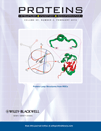How noise in force fields can affect the structural refinement of protein models?
Abstract
Structural refinement of predicted models of biological macromolecules using atomistic or coarse-grained molecular force fields having various degree of error is investigated. The goal of this analysis is to estimate what is the probability for designing an effective structural refinement based on computations of conformational energies using force field, and starting from a structure predicted from the sequence (using template-based or template-free modeling), and refining it to bring the structure into closer proximity to the native state. It is widely believed that it should be possible to develop such a successful structure refinement algorithm by applying an iterative procedure with stochastic sampling and appropriate energy function, which assesses the quality (correctness) of protein decoys. Here, an analysis of noise in an artificially introduced scoring function is investigated for a model of an ideal sampling scheme, where the underlying distribution of RMSDs is assumed to be Gaussian. Sampling of the conformational space is performed by random generation of RMSD values. We demonstrate that whenever the random noise in a force field exceeds some level, it is impossible to obtain reliable structural refinement. The magnitude of the noise, above which a structural refinement, on average is impossible, depends strongly on the quality of sampling scheme and a size of the protein. Finally, possible strategies to overcome the intrinsic limitations in the force fields for impacting the development of successful refinement algorithms are discussed. Proteins 2012. © 2011 Wiley Periodicals, Inc.




